| |
 |
From the Director:
Social Media Sites Can
Help You and Hurt You
I confess: I’m not on
Facebook. I don’t Tweet. I don’t blog. Call me a Luddite. Call me
a hermit. Call me a techno-fogey. Creating a Facebook page or the
like seems to me like investing in a beautiful, lush green lawn. That
you – or someone you hire – then have to mow and mulch and weed and
water and fertilize and otherwise fuss over now and forever. (As you
may have guessed, I don’t have a lawn.) To use an urban
dictionary-type, mildly naughty-sounding descriptor, social media
sites for me are a “time suck.” I’ve got plenty to do already, thank
you.
However, I concede that at least 600 million Facebookers and 97
million Twitterers may not share my priorities. So, we commend to you
again a new Facebook page, the
Georgia Mediators Network, a great resource for the latest
mediation news and articles from around the world. The page is the
brainchild of registered mediator Michele Gibson, our marketing
columnist and newsletter producer. In her marketing column this
month, Michele shows mediators how they can harness the power of
social media to grow their businesses.
Amid the hoopla over social media, let me strike a cautionary tone
here. Social media make it easy to connect and communicate – for
example, they played a major role in the recent pro-democracy revolts
in the Middle East and North Africa. But social media also make it
easy to flame out fantastically in front of a whole lot of people. A
certain duck, a comedian, and a natural disaster in Asia come to
mind.
The intersection of social media and the law has produced some
mesmerizing ethical collisions. You’ve heard about the judge who
violated judicial canons by “friending” an attractive juror in one of
his active trials. Or about the juror who was jailed for contempt
after she posted her opinions about the case she was deliberating. Or
about the lawyer who was sued after boasting by posting confidential
terms of a case he had settled. As you might expect, social media
misbehavior is a major migraine for the courts.
As John D. Marshall, a lawyer and registered neutral, points out in a
guest column this month, social media are no less ethically fraught
for mediators. Georgia-registered mediators are bound by their
ethical obligations to self-determination/voluntariness,
confidentiality, impartiality, and fairness. Mediators who use social
media can easily find themselves afoul of one or more of these ethical
standards unless they use great care and discretion. For example,
mediators are obligated generally to keep confidential anything that
is said or done in a mediation. That obligation doesn’t end when the
mediation ends. It continues. Forever. So, if a mediator ever posts
online confidential information from a mediation, no matter how old,
the mediator has violated confidentiality.
The immunity available to registered neutrals under the Georgia ADR
Rules can protect mediators, but only so far:
| |
C. |
Immunity: |
| |
|
No neutral in a court-annexed or court-referred program shall be
held liable for civil damages for any statement, action, omission
or decision made in the course of any ADR process unless that
statement, action, omission or decision is 1) grossly negligent
and made with malice or 2) is in willful disregard of the safety
or property of any party to the ADR process. |
So if a mediator posts confidential information or personal thoughts
about any mediation, the mediator’s conduct could be found to be
“grossly negligent.” If the mediation involved parties with a history
of abuse or violence, a mediator’s posts may be found to display
“willful disregard of the safety” of a party. If your conduct goes
that far, let’s hope your professional liability policy is up to
date.
A good rule of thumb: If you shouldn’t say it or do it in “real
life,” then certainly don’t say it or do it electronically – on your
phone or your computer or your tablet. Another good rule of thumb:
Think before you post.
So, fellow mediators and social media consumers, enjoy! Have fun! But
be careful, and be smart. Assume that anyone in the world – past,
present and future clients, colleagues, friends, family, and enemies –
can see what you post. And act accordingly. I’m going to go not mow
the lawn that I don’t have.
|
|
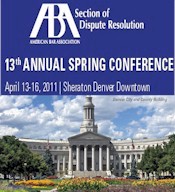 |
ABA DR Section Annual Spring Conference
Denver, April 13-16
There's still time to register for the world's largest conference of
ADR professionals. The American Bar Association Dispute Resolution
Section's Annual Spring Conference typically draws 1,000 or more
attendees from across the globe for four days of learning and
networking with some of the most respected names in the profession.
Like whom ? This year, how about renowned mediator, teacher, and
author Robert Mnookin, professor of law at Harvard, director the
Harvard Negotiation Research Project, and steering committee chair of
Harvard's Program on Negotiation.
The year's conference will be held April 13-16 in Denver and will
feature nearly 100 programs covering the breadth of the dispute
resolution field. Program topics should appeal to mediators,
arbitrators, educators, lawyers, judges, court administrators and
others who have made ADR their vocation or avocation. "If you are
interested in dispute resolution, we have something to offer you,"
says Dispute Resolution Section Chair R. Wayne Thorpe, Esq., a former
member of our Georgia Commission on Dispute Resolution who now serves
as a full-time neutral with JAMS in Atlanta.
Costs ? There are special conference registration rates for first-time
attendees; government employees, judges, and students. See
this link
for more information on the conference and to register online.
|
|
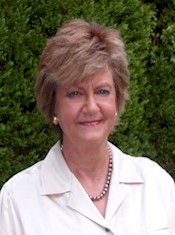 |
Case Watch for Mediators:
School Attendance and Child Support
Child
support obligations often end once a child stops attending secondary
school. But what constitutes a “school” under Georgia law? And when
does the law consider a child to be “attending” school? The Georgia
Supreme Court’s answers to these deceptively simple questions are the
focus of this month’s CaseWatch for Mediators by Mary Ellen Cates,
divorce attorney and registered mediator.
|
|
-sm.jpg) |
Case Watch for Arbitrators:
U.S. Supreme Court to Hear FAA Challenges
The
federal government has the Federal Arbitration Act. States have their
own arbitration laws. What happens when the FAA collides with state
law and policy? The U.S. Supreme Court is about to hear a California
case that challenges the authority of the FAA over state law, a case
that has the potential to change a federal policy favoring arbitration
that has been in place for nearly 90 years. Read on for an analysis
of the conflicts in the case and their implications in this
installment of CaseWatch for Arbitrators, by John Allgood, Esq.,
veteran attorney, mediator and arbitrator.
|
|
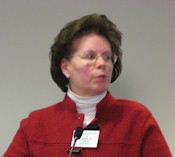 |
Marketing Tip:
Social
Media – The 800-pound Gorilla
Facebook. LinkedIn. Twitter. Plaxo. Social media can connect you
to friends, family and like-minded folks all over the world. But can
these powerful services actually help you to grow your mediation
practice? You bet! In this month’s Marketing Tip, registered
mediator and marketing expert Michele Gibson tell you all you need to
know to start effectively harnessing the power of social media to
bring Internet traffic – and potential clients – to your electronic
doorstep.
|
|
 |
Theory to
Practice: Social Media and the Law
So a lawyer gets steamed at a judge and does what may of us do
today...he blogs about said judge calling her "an evil, unfair witch"
and ends up with a $1,200 fine. Or consider the man who tells
the judge that he can't afford to pay child support at the same time
as he is posting photos of his recent cruise and his new ferrari.
Social media is having significat impact on the courts and it's time
to take a look at the implications of a seemingly simple post. Learn
more in this enlightening article by guest columnist John D. Marshall,
lawyer and registered neutral.
|
|
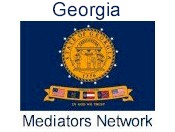 |
Georgia Mediators Network is Now on Facebook
Check
out this a great new online resource for mediators: the
Georgia Mediators Network. Created by registered mediator Michele
Gibson (who also produces this newsletter and writes the “Marketing
Tip” column), the Georgia Mediators Network posts ADR links to
articles from around the world on its
Facebook page. Think of it as an electronic newsstand where you
can find informative news that you can post on your own websites or
distribute to your students. Two recent postings: an article on the
cost-savings of mediating v. litigating a divorce, from Ireland’s
Independent, and a press release on how China is using mediation
to encourage out-of-court settlements of civil cases, from the Xinhua
News Agency. Content is updated daily, sometimes several times daily,
so check back often. And yes, you can view the content even if you
don’t have a Facebook account of your own. Thank you, Michele!

|
 |
|
 |
Georgia ADR Blog
While
GODR staff have not had the time to blog for you, we encourage you to
visit the
blog created by Georgia State University law professor Doug Yarn
and GSU law student Tom DeFreytas to inform and encourage discussion.
Please add it to your reading list, send the link to your colleagues,
and visit often. The address:
http://georgiaadr.wordpress.com/
|
|
|

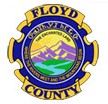 |
Recent Changes in Local ADR Programs
Two ADR programs have new directors: Mary Hogan is now the program
director for the Rockdale County Juvenile Court Mediation Program.
And Courtney Shedd is the new program coordinator for the Floyd County
Magistrate Court Mediation Program. Their contact information:
Mary Hogan, Programs Administrator
Rockdale County Juvenile Court
922 Court Street
Conyers, GA 30012
770-278-7763
770-278-8916 Fax
mary.hogan@rockdalecounty.org
Courtney Shedd, Court Supervisor/Mediation Coordinator
Magistrate Court of Floyd County
3 Government Plaza
Suite 227
Rome, GA 30161
706-291-5250
706-291-5269 fax
sheddc@floydcountyga.org
The latest contact information for local court ADR programs is always
available on our
website. Search by county or program name.
|
|
 |
Upcoming CE and Training Offerings
Don’t
wait until the 2011 renewal season to get your CEs. Check frequently
at our
website for the latest CE
and training offerings. Remember, any training you take counts as CE
as long as you took it since your last renewal or your initial
registration, whichever comes later. Lawyers, any CLE you took during
that same time period counts as CE. Likewise, judges and CJE.
Accountants and other professionals with CE requirements, same thing.
|
|
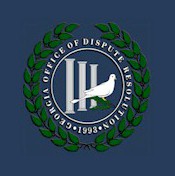 |
Be Neutral
Back Issues Available Online
Be
Neutral
is sent monthly to all registered neutrals, generally at the beginning
of the month. If you missed an issue, our back issues are posted at
the bottom right of our website, under
“Newsletter Archive.” Please take a look. If you know people who
want Be Neutral, please direct them to our subscription box at
the bottom right of our
website, where they just
need to enter their e-mail addresses. Please forward this newsletter
to anyone who might be interested in ADR in Georgia courts. Forward
it just as you would any other e-mail. If folks who are not
registered neutrals want to receive the newsletter free of charge,
they can submit their e-mail addresses in the subscription box at the
bottom right of our
website. And sending us feedback is easy – just reply to this
e-mail as you would any other e-mail. We want to hear from you!
|
|
|
Spread the Word
Please forward this newsletter to anyone who might be interested in ADR in Georgia courts. Forward it just as you would any other e-mail.
If folks who are not registered neutrals want to receive the
newsletter free of charge, they can use the subscription box at below this
text or submit their e-mail addresses in the
subscription box at the bottom right of the home page of our
website. And sending us feedback is easy – just reply to this
e-mail as you would any other e-mail. We want to hear from you !
|
|

|
|
|